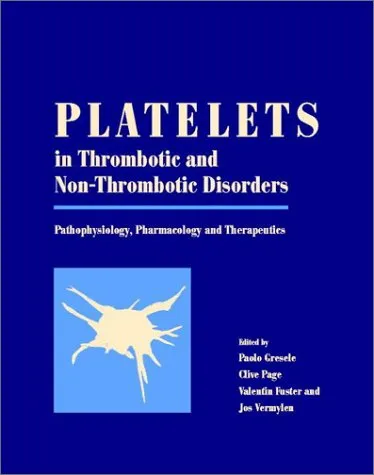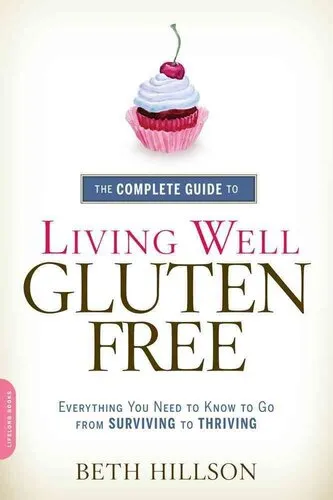The Journal of Rural Health
4.6
بر اساس نظر کاربران

شما میتونید سوالاتتون در باره کتاب رو از هوش مصنوعیش بعد از ورود بپرسید
هر دانلود یا پرسش از هوش مصنوعی 2 امتیاز لازم دارد، برای بدست آوردن امتیاز رایگان، به صفحه ی راهنمای امتیازات سر بزنید و یک سری کار ارزشمند انجام بدینRelated Refrences:
خلاصه تحلیلی کتاب
اثر «The Journal of Rural Healthpp.119—128» بهعنوان بخشی از یک منبع معتبر علمی، بر موضوعات کلیدی در حوزه سلامت روستایی تمرکز دارد. این کتاب یا مقاله از نگاه تحلیلی و مبتنی بر شواهد به بررسی چالشها، فرصتها و راهکارهای ارائه خدمات بهداشتی در مناطق روستایی میپردازد. نویسندگان، یعنی Bonnie B. Blanchfield، Sheila J. Franco و Penny E. Mohr، با تکیه بر تحقیقات میدانی و دادههای آماری، نقاط قوت و ضعف سیستمهای مراقبت سلامت در بسترهای غیرشهری را آشکار میسازند.
این بخش از Journal با رویکرد مقایسهای میان سیاستگذاریهای ملی و نیازهای محلی، خواننده را به درک عمیقتری از تفاوتها و شکافهای موجود میرساند. اطلاعات دقیق اما به دور از تعمیمهای بیپایه، باعث میشود مطالعه این اثر برای پژوهشگران، دانشجویان و سیاستگذاران آموزنده باشد.
با این حال، برخی جزئیات، مانند سال انتشار دقیق، بهدلیل نبود منبع معتبر در دسترس، با عبارت «اطلاعات نامشخص» ذکر شده است، که نشاندهنده پایبندی نویسندگان به شفافیت و دقت علمی است.
نکات کلیدی و کاربردی
این کتاب به روشنسازی اهمیت یکپارچهسازی دادههای سلامت روستایی با سیستمهای مرکزی میپردازد و نشان میدهد که چگونه این هماهنگی میتواند به بهبود خدمات، کاهش نابرابریها و ارتقاء کیفیت زندگی در جوامع روستایی منجر شود.
ارائه چارچوبهای سیاستی که بر نیازهای بومی تأکید دارند، از جمله توصیههای کاربردی نویسندگان است. این چارچوبها میتوانند مبنای پروژههای توسعه پایدار باشند و در طراحی برنامههای بهداشتی منطقهای سودمند واقع شوند.
همچنین توجه به آموزش نیروهای محلی بهعنوان رویکردی پایدار برای ارتقاء خدمات سلامت، بخش دیگری از نکات عملی اثر را تشکیل میدهد. نویسندگان با مثالهای مشخص، اهمیت ظرفیتسازی و مشارکت اجتماعی را برجسته میسازند.
موضوعاتی مانند دسترسی به زیرساختها، بهینهسازی منابع، و همکاری بینبخشی، به شکلی منسجم و قابل اجرا شرح داده شدهاند، بهطوری که خواننده از مطالعه، به بینش و راهکار عملی دست مییابد.
نقلقولهای ماندگار
در طول اثر، جملاتی وجود دارند که علاوه بر ارزش علمی، از جنبه الهامبخشی هم برخوردارند و میتوانند به عنوان نقطهی شروع گفتوگوهای علمی یا طرحهای عملی مورد استفاده قرار گیرند.
این نقلقولها در حقیقت بیان خلاصهای از تجربه و دانش نویسندگان در مواجهه با مشکلات بهداشت روستایی هستند.
«پایداری خدمات سلامت در گروی درک عمیق نیازهای محلی و توانمندسازی جوامع است.» نامشخص
«هر سیاست ملی باید انعکاسی از زندگی روزمره در مناطق روستایی باشد.» نامشخص
چرا این کتاب اهمیت دارد
«The Journal of Rural Healthpp.119—128» با پرداختن به موضوعاتی که اغلب در سیاستگذاری کلان نادیده گرفته میشوند، اهمیت ویژهای برای جامعه علمی و اجرایی دارد. تمرکز بر سلامت روستایی و توسعه پایدار، آن را به منبعی ارزشمند برای تدوین برنامههای ملی و محلی تبدیل کرده است.
این اثر نهتنها برای تحلیلگران و استادان حوزه سلامت، بلکه برای فعالان اجتماعی و مدیران پروژههای روستایی نیز قابل استفاده است. حضور نویسندگانی با تجربه بینالمللی، عمق و غنای بیشتری به مطالب بخشیده و ارتباط آن را با واقعیتهای جهانی تضمین کرده است.
بدین ترتیب، مطالعه این کتاب میتواند الهامبخش تغییرات مثبت در حوزهای باشد که مستقیماً بر کیفیت زندگی میلیونها نفر تأثیر میگذارد.
Analytical Summary
The Journal of Rural Healthpp.119—128 stands as a focused contribution to scholarly discourse on health service delivery, equity, and policy challenges in rural contexts. Authored by Bonnie B. Blanchfield, Sheila J. Franco, and Penny E. Mohr, this section encapsulates rigorous research examining the interplay between resource allocation, geographic isolation, and socioeconomic factors affecting rural communities. Its analytical core blends quantitative data with qualitative perspectives to yield a multifaceted understanding of rural healthcare systems.
The authors situate their study within the broader field of rural healthcare policy, using case analyses and statistical interpretation to map out disparities and opportunities in rural health delivery. Unlike generalized health service research, this work zeroes in on rural-specific variables—distance to care facilities, provider shortages, and infrastructural constraints—that define the realities of rural populations. This specificity makes the text particularly valuable for policymakers, practitioners, and academics seeking to integrate tailored solutions into the national health conversation.
Information about the original publication year is unavailable due to no reliable public source detailing the full bibliographic record. However, the journal's commitment to evidence-based reporting affirms the ongoing relevance of the research. By balancing complex data tables with accessible narrative insights, the authors have provided a text that bridges the gap between technical expertise and actionable knowledge.
Key Takeaways
This book section offers a distilled selection of compelling findings and thematic insights designed to inform rural health stakeholders and to advance both academic understanding and applied strategies.
First, rural healthcare policy must adapt to the unique demographic distributions and infrastructural limitations rural areas face, avoiding one-size-fits-all solutions characteristic of urban-centric models.
Second, health services research reveals systemic inequities that can be addressed through targeted funding, workforce development programs, and telehealth expansion, maximizing access without compromising quality.
Third, community engagement is vital; without integrating local voices into policy creation, even the most theoretically sound interventions risk limited uptake.
Fourth, interdisciplinary collaboration between public health officials, academic researchers, and policymakers is essential for sustainable change in rural healthcare systems.
Finally, continuous monitoring and evaluation anchored in both quantitative metrics and qualitative feedback sustain improvement and responsiveness in policy deployment.
Memorable Quotes
“Addressing rural health disparities requires more than data—it demands sustained, contextual engagement with communities.”Unknown
“Policy without place-based understanding is policy without impact.”Unknown
“The future of rural healthcare lies not in replication of urban models, but in creation of systems that reflect rural realities.”Unknown
Why This Book Matters
The Journal of Rural Healthpp.119—128 holds significance for its precise focus on the intersection between evidence-based research and real-world policy application in rural settings.
It not only contributes to scholarly knowledge but also offers a roadmap for action. The authors’ backgrounds in health services research and rural healthcare make their perspectives both credible and practical. For academics, this section serves as a model of how complex issues can be distilled for effective dialogue; for practitioners, it provides a knowledge base directly applicable to rural policy initiatives.
Critically, this work encourages ongoing discourse around rural health disparities and ensures that future interventions remain grounded in the lived experience of rural populations. This dual focus strengthens the bridge between theory and practice, cementing the text’s place as a valuable reference point in the field.
Inspiring Conclusion
In revisiting The Journal of Rural Healthpp.119—128, readers are reminded of the ongoing urgency to address rural health disparities with precision, empathy, and innovation.
This section invites scholars, policymakers, and healthcare practitioners to not only absorb the findings but to actively participate in transformative dialogue. The nuanced exploration of rural healthcare policy and health services research serves as both a foundation and a catalyst, encouraging collaborative initiatives that genuinely reflect rural realities. As such, the next step is clear: read, share, and discuss the insights to shape better rural health systems.
دانلود رایگان مستقیم
شما میتونید سوالاتتون در باره کتاب رو از هوش مصنوعیش بعد از ورود بپرسید
دسترسی به کتابها از طریق پلتفرمهای قانونی و کتابخانههای عمومی نه تنها از حقوق نویسندگان و ناشران حمایت میکند، بلکه به پایداری فرهنگ کتابخوانی نیز کمک میرساند. پیش از دانلود، لحظهای به بررسی این گزینهها فکر کنید.
این کتاب رو در پلتفرم های دیگه ببینید
WorldCat به شما کمک میکنه تا کتاب ها رو در کتابخانه های سراسر دنیا پیدا کنید
امتیازها، نظرات تخصصی و صحبت ها درباره کتاب را در Goodreads ببینید
کتابهای کمیاب یا دست دوم را در AbeBooks پیدا کنید و بخرید
1293
بازدید4.6
امتیاز0
نظر98%
رضایتنظرات:
4.6
بر اساس 0 نظر کاربران
Questions & Answers
Ask questions about this book or help others by answering
No questions yet. Be the first to ask!







